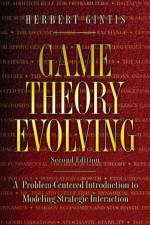- The Moral and Material Bases of Social Life
av Herbert Gintis
497
A richly transdisciplinary account of some fundamental characteristics of human societies and behaviorIn this book, acclaimed economist Herbert Gintis ranges widely across many fields-including economics, psychology, anthropology, sociology, moral philosophy, and biology-to provide a rigorous transdisciplinary explanation of some fundamental characteristics of human societies and social behavior. Because such behavior can be understood only through transdisciplinary research, Gintis argues, Individuality and Entanglement advances the effort to unify the behavioral sciences by developing a shared analytical framework-one that bridges research on gene-culture coevolution, the rational-actor model, game theory, and complexity theory. At the same time, the book persuasively demonstrates the rich possibilities of such transdisciplinary work.Everything distinctive about human social life, Gintis argues, flows from the fact that we construct and then play social games. Indeed, society itself is a game with rules, and politics is the arena in which we affirm and change these rules. Individuality is central to our species because the rules do not change through inexorable macrosocial forces. Rather, individuals band together to change the rules. Our minds are also socially entangled, producing behavior that is socially rational, although it violates the standard rules of individually rational choice. Finally, a moral sense is essential for playing games with socially constructed rules. People generally play by the rules, are ashamed when they break the rules, and are offended when others break the rules, even in societies that lack laws, government, and jails.Throughout the book, Gintis shows that it is only by bringing together the behavioral sciences that such basic aspects of human behavior can be understood.




